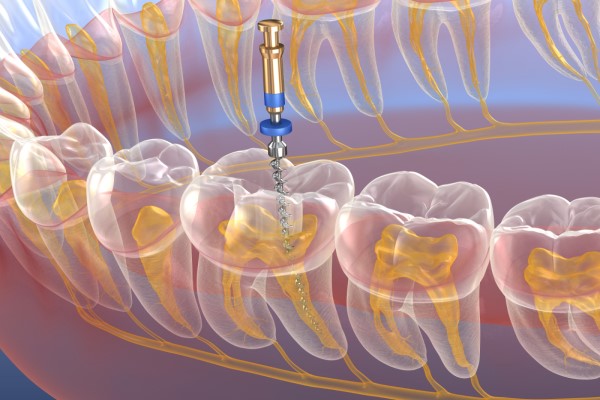Is a Baby Root Canal Safe?

You might be surprised to learn about a procedure known as a baby root canal. Remember, children can end up with infected teeth, just like adults. Saving a milk tooth with a dental procedure like a root canal might seem counterproductive at first glance, but baby teeth play an important role in the mouth. They assist in breaking down food and pronouncing words properly. Losing baby teeth prematurely can end up hindering a child’s development.
What to expect when a dentist recommends a baby root canal
A dentist might recommend a baby root canal when a child’s tooth is infected or at risk of being infected. The procedure can also be performed to preserve the structure of a damaged tooth so it does not end up falling out prematurely.
The visible part of a tooth called its crown, is made up of multiple layers. The exterior enamel is the strongest part of the tooth and the rest of the human body. Its role is to protect the more delicate inner layers.
Next is the dentin, which is a more delicate inner layer that contains tiny nerve endings. The dentin is sensitive to extreme temperatures and sugar.
The third layer is called the pulp chamber and contains the tooth’s blood vessels and nerve. It is sealed off from the rest of a tooth to prevent bacteria in the mouth from getting to the tissues there. When a tooth becomes damaged by decay or trauma, the pulp chamber might get opened up. It is only a matter of time before the tooth becomes infected.
A tooth infection counts as a dental emergency under any circumstances, and it is even more important for young children to get the treatment that they need immediately. A tooth infection can easily spread to other parts of the body, where it can be life-threatening. A tooth infection can also morph into an abscess, which is a significantly painful ordeal that requires a more complicated treatment.
Signs that a child might need a baby root canal include:
- Pimple-like bumps forming on gum tissues
- Severe toothaches that leave the child in agony and unable to sleep
- A tooth turning dark
- Pain when a tooth is touched
- Sensitivity to hot and cold foods
- Weird smell in the mouth
The procedure
Baby root canals are not that different from conventional ones. Anesthetics are typically used so the child does not feel pain while the dentist performs the treatment. It should feel no different than having to get a filling. Dentists can also offer sedatives that can help if the child is anxious or has special needs.
A tiny hole is drilled into the damaged tooth and the nerve and blood vessels are extracted. The area is cleaned and sterilized before being sealed back up. The dentist might then cover the tooth with a pediatric crown to keep it intact and protect what’s left of the tooth.
Get your child the care that they need
A baby root canal can help prevent and treat an infected tooth. Call or visit our Phoenix clinic to set up an appointment with our dentist.
Request an appointment here: https://nettsmiles.com or call Nett Pediatric Dentistry & Orthodontics at (623) 759-7658 for an appointment in our Phoenix office.
Check out what others are saying about our services on Yelp: Read our Yelp reviews.
Recent Posts
A kid-friendly dentist can treat a range of oral health concerns. However, their primary focus is helping children prevent oral health concerns from developing through good oral hygiene at home. This includes offering educational services to ensure parents and children have all of the information they need to keep a consistent oral care routine and…
Braces can help transform a child's misaligned teeth. However, it can be challenging to navigate the discomfort that comes through them. A kids orthodontist can help you manage your child's braces pain with a combination of practical strategies and patience. With the right approach, children can comfortably adapt to their orthodontic treatment and maintain a…
Parents who hear the term pediatric dental crowns during a checkup often feel surprised and a little anxious about what this treatment entails. However, the only difference between these crowns and adult crowns is that they are made for children's teeth. They protect and restore primary teeth damaged by decay, chips, cracks, or other issues.…
A kid-friendly dentist can treat a plethora of oral health concerns, including toothaches. Understanding the methods a kid-friendly dentist uses to diagnose the underlying cause of a toothache and promptly treat it can help patients feel more comfortable about the visit. Kid-friendly dentists also help with toothache prevention, effectively improving the way children view the…


